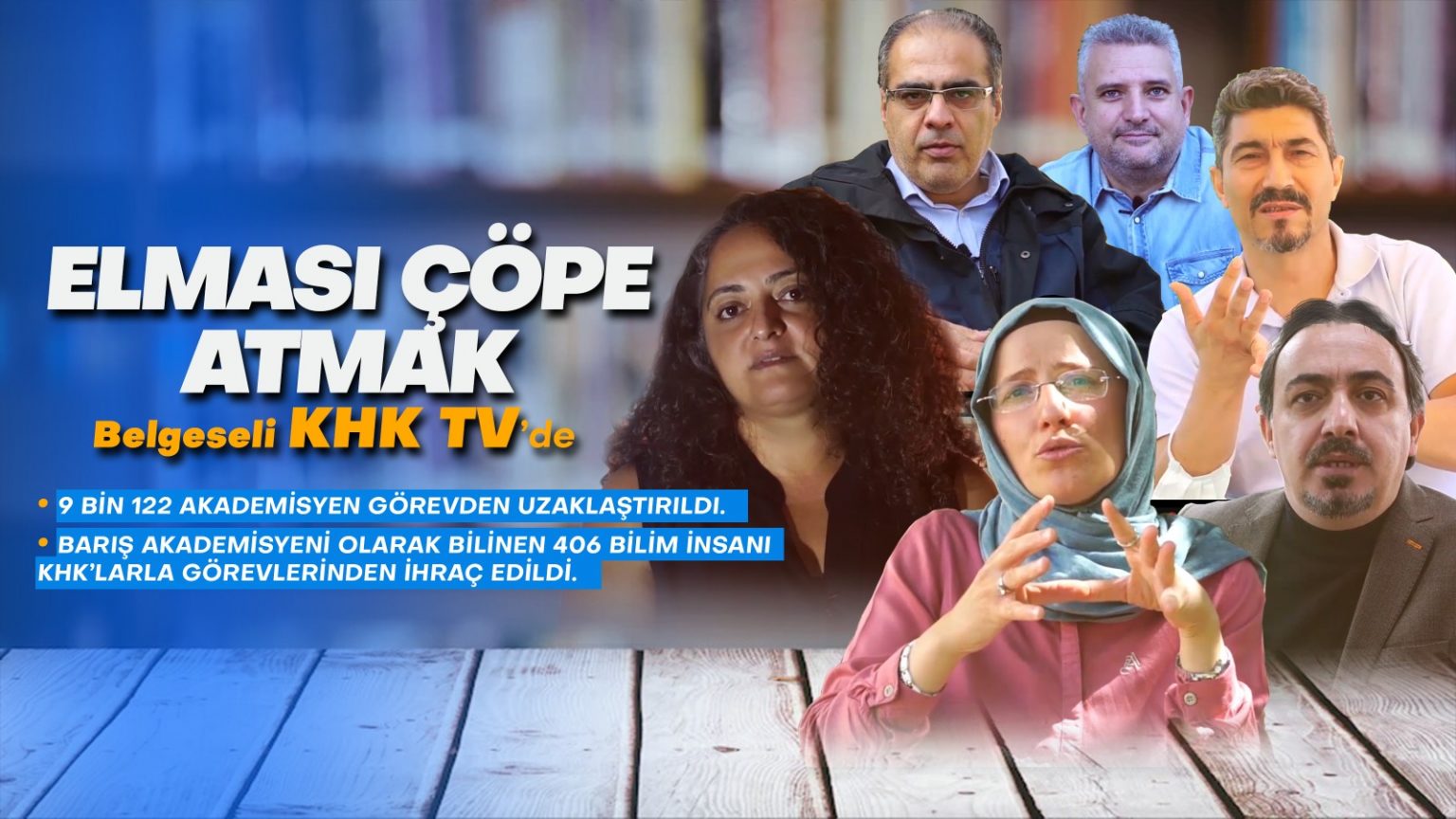“Elması Çöpe Atmak” (Throwing Diamonds in the Trash), a documentary recently released on KHK TV –- a YouTube channel established by Turkey’s purge victims –- focuses on the injustices faced by over 9,000 academics who were fired from their jobs in Turkey by government decrees in the aftermath of an abortive putsch in July 2016 as well as the consequences of their purge.
Following the failed coup, President Recep Tayyip Erdoğan’s Justice and Development Party (AKP) government carried out a massive purge of state institutions under the pretext of an anti-coup fight, summarily dismissing some 130,000 public servants as well as military personnel for alleged membership in or relationships with “terrorist organizations” by emergency decree-laws subject to neither judicial nor parliamentary scrutiny.
“Millions of people were negatively affected by the decree-laws issued after the coup attempt on July 15, 2016. Cases have been filed against 1,576,000 people in five years on charges of membership in an armed terrorist organization,” the documentary says.
According to data revealed in the documentary, academics made up 9,122 –- 6,081 of them working at state universities and 3,041 employed at private universities -– of at least 125,678 public servants who were fired as part of Turkey’s post-coup purge.
In addition to the dismissal of 5 percent of Turkey’s total academic staff, including 406 “Peace Academics,” 15 private universities were shut down via decree-law no 667, which was issued on July 23, 2016, the documentary says.
A total of 1,128 academics who referred to themselves as the “Peace Academics” signed a declaration in early 2016 calling on the ruling AKP to halt operations by security forces in southeastern Turkey, restore peace to the nation and return to the negotiating table to restart shelved talks to find a peaceful solution to the so-called Kurdish issue, attracting widespread criticism from the government in return.
The Kurdish issue, a term prevalent in Turkey’s public discourse, refers to the demand for equal rights by the country’s Kurdish population and their struggle for recognition.
While hundreds of the signatories were fired, many others were sentenced to prison or subjected to an overseas travel ban.
The documentary further underlines that the crackdown targeting academics resulted in a 30 percent drop in the number of scientific publications in the country, a situation referred to as “Turkey’s brain hemorrhage” that caused the country to fall behind Iran, Mexico and South Africa in terms of scientific output.
“Many of the academics who were fired … had to work in manual labor jobs just to survive. Others left the country illegally because their passports were canceled to prevent them from leaving,” the documentary says.
It concluded by stating that the injustices and rights violations facing Turkey’s academics continue although it has been five years since the first decree-law was issued and the state of emergency ended in July 2018.
The AKP’s post-coup crackdown ruined the lives of tens of thousands in Turkey who have been targets of hate speech, hate crimes, unlawful prosecution, torture and abductions, among other serious human rights violations.
Former public servants were not only fired from their jobs; they were also banned from working again in the public sector and getting a passport. The government also made it difficult for them to work formally in the private sector.
Most dismissed civil servants are accused of links to the faith-based Gülen movement, inspired Islamic preacher Fethullah Gülen, but there were many others who belonged to other opposition groups.
The ruling AKP labels the movement as a terrorist organization and accuses them of masterminding the abortive putsch, although Gülen and his followers strongly deny involvement in the coup attempt or any terrorist activity.



